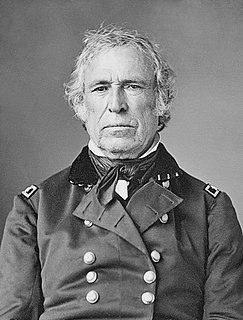A Quote by Rand Paul
The Constitution's pretty clear. The Federalist papers are pretty clear... They very specifically delegated the power to declare war to Congress. They wanted this to be a congressional decision; they did not want war to be engaged in by the executive without approval of Congress.
Related Quotes
With 450,000 U. S. troops now in Vietnam, it is time that Congress decided whether or not to declare a state of war exists with North Vietnam. Previous congressional resolutions of support provide only limited authority. Although Congress may decide that the previously approved resolution on Vietnam given President Johnson is sufficient, the issue of a declaration of war should at least be put before the Congress for decision.
I believe that the power to declare war is most important in limiting the powers of the national government in regard to the rights of its citizens, but that it does not require Congress to give its approval before the president uses force abroad. I do not believe that the framers of the Constitution understood the power to declare to mean "authorize" or "commence" war. That does not mean that the separation of powers or checks and balances will not work.
In explaining the Constitution, James Madison, the acknowledged father of the Constitution, wrote in Federalist Paper 45: 'The powers delegated by the proposed Constitution to the Federal government are few and defined. Those which are to remain in the State governments are numerous and indefinite. The former will be exercised principally on external objects, as war, peach, negotiation, and foreign commerce.' Has the Constitution been amended to permit Congress to tax, spend and regulate as it pleases or have Americans said, 'To hell with the Constitution'?
No power but Congress can declare war; but what is the value of this constitutional provision, if the President of his own authority may make such military movements as must bring on war? ... [T]hese remarks originate purely in a desire to maintain the powers of government as they are established by the Constitution between the different departments, and hope that, whether we have conquests or no conquests, war or no war, peace or no peace, we shall yet preserve, in its integrity and strength, the Constitution of the United States.
Have you ever noticed that the only metaphor we have in our public discourse for solving problems is to declare war on it? We have the war on crime, the war on
cancer, the war on drugs. But did you ever notice that we have no war on homelessness? You know why? Because there's no money in that problem. No money to be made off of the homeless. If you can find a solution to homelessness where the corporations and politicians can make a few million dollars each, you will see the streets of America begin to clear up pretty damn quick!
It's pretty clear that over the last three months the economy has paused. And it's also pretty clear the American people are still demanding and asking the question, 'Where are the jobs?' And the reason we don't have new jobs is because of the job-killing agenda pursued by President Obama and his allies in the Congress.
Congress has created and funded a huge peacetime military that has substantial abilities to wage offensive operations, and it has not placed restrictions on the use of that military or the funds to support it, because it would rather let the president take the political risks in deciding on war. If Congress wanted to play a role in restricting war, it could - it simply does not want to. But we should not mistake a failure of political will for a violation of the Constitution.































